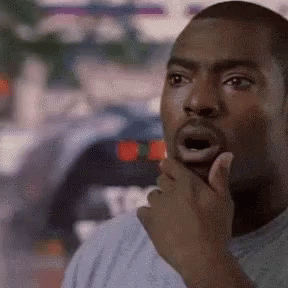Spoiler One Piece Chapter 1022 Spoilers Discussion
- Thread starter Gol D. Roger
- Start date
- Tags #perona>black maria #ulti is best girl #yamato4nakama all stars>lobi roppo killer vs hawkins king and queen hype king and queen>who's who and sasaki lobi roppo raizo>naruto sanji d wings sanji vs queen sanjiszn ulti>yamato wanji bodies your fav wanji hype zoro and sanji greatness zoro and sanji hype zoro and sanji vs king and queen zoro bodies your fav zoro vs king
- Status
- Not open for further replies.
More options
Who Replied?
That's fine, but the way the spoiler is written is done so that you think the "star" who is on scene is Zoro.
1. She literally said there’s three races I don’t have join me. Not “your strength will be important” like she did for the giants.
2. Franky didn’t work with Vegapunk before and during vegapunk was with the WG. I don’t see how thats not special
3. King never beat Marco
2. Franky didn’t work with Vegapunk before and during vegapunk was with the WG. I don’t see how thats not special
3. King never beat Marco
1. Yes and one of the races are giants. Which she also wants for a power purposed meaning there are races she wants also because of power.
2. Queen is a cyborg Franky. To add judge also worked with vegapunk and we see from a power standpoint he isn't impressive
3. And Marco is incapable of beating king and instead hypes him and his race
A webpage discussing a Japanese kabuki magazine:
"Also in the issue, among other features, are discussions with actors Nakamura Kazutarō, Onoe Ukon, Nakamura Yonekichi, and Nakamura Hashinosuke about their then upcoming March program at Kyoto’s Minami-za, focused on these rising 'young stars' (hanagata)".
Quote from a book on film and acting stars throughout the world:
"...the kimono and ornamental hairpins (kanzashi) that kabuki stars (hanagata) were wearing...".
A 1940 article titled "Kansai de chûmoku sareru hanagata kabuki", which was translated as "Young stars' Kabuki in the Kansai Area".
A 1883 woodprint with a whole cast of actors that is titled "Arigataki megumi no hanagata", which translates to "Kabuki stars at a blessing waterfall". I mean, if this isn't plural I don't know what else could be:

I could search more if you want. We could debate whether the word is grammatically plural itself or not, which is more of a linguistic debate (for example, "people" in English is plural but "gente" in Spanish is singular, yet both refer a collection of individuals). But it's clear that "hanagata" can be used to refer more than one person.
Here above I share some examples.
"Also in the issue, among other features, are discussions with actors Nakamura Kazutarō, Onoe Ukon, Nakamura Yonekichi, and Nakamura Hashinosuke about their then upcoming March program at Kyoto’s Minami-za, focused on these rising 'young stars' (hanagata)".
Quote from a book on film and acting stars throughout the world:
"...the kimono and ornamental hairpins (kanzashi) that kabuki stars (hanagata) were wearing...".
A 1940 article titled "Kansai de chûmoku sareru hanagata kabuki", which was translated as "Young stars' Kabuki in the Kansai Area".
A 1883 woodprint with a whole cast of actors that is titled "Arigataki megumi no hanagata", which translates to "Kabuki stars at a blessing waterfall". I mean, if this isn't plural I don't know what else could be:

I could search more if you want. We could debate whether the word is grammatically plural itself or not, which is more of a linguistic debate (for example, "people" in English is plural but "gente" in Spanish is singular, yet both refer a collection of individuals). But it's clear that "hanagata" can be used to refer more than one person.
Here above I share some examples.
Will need to wait for the chapter to see what's it about. So far still looks like Zoro given TalkOP spoilers.
Drake is still going extreme diff with a heavily injured Apoo right now.
Drake is trash
Drake is trash
 Those 2 fighting against each other makes very little sense and its a waste
Those 2 fighting against each other makes very little sense and its a waste
As if it wasn't enough Zoro and Sanji being grouped as ''wings'' of the Pirate King, Marco has just named them in a group as ''stars of the show''
This chapter shouts to readers: 'Zoro ~ Sanji'
Zoro's fanboys will soon commit collective suicide
This chapter shouts to readers: 'Zoro ~ Sanji'
Zoro's fanboys will soon commit collective suicide
Sanji is half the man that Zoro is whatever you like it or not
- Status
- Not open for further replies.







